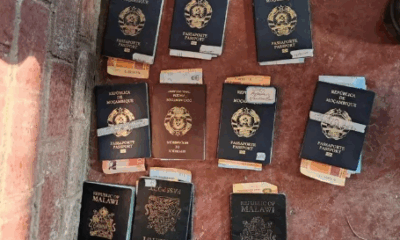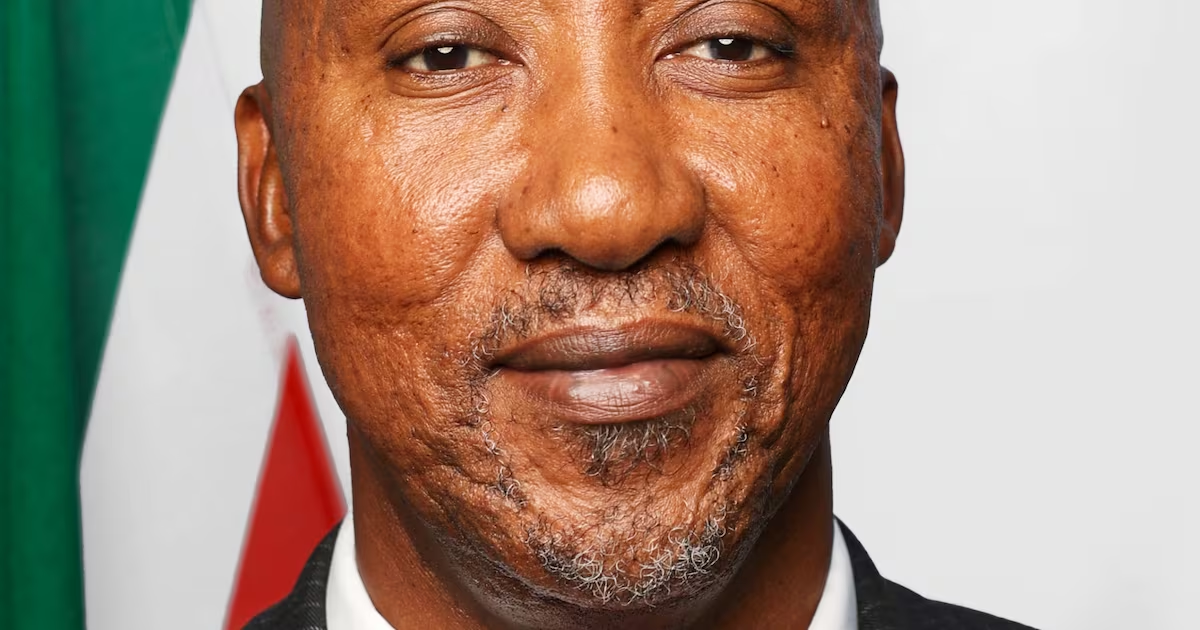News
Home Affairs Reports Big Wins: Over 51 000 Deportations and a Digital Overhaul for South Africa

The Department of Home Affairs has delivered one of the most striking success stories of the Government of National Unity’s first year. More than 51 000 undocumented migrants have been deported since the GNU took office, a number that surpasses the combined deportations of the last five years.
For Minister Leon Schreiber, the figure represents not just numbers, but proof that long-neglected border controls can be strengthened when political will meets technology.
Closing the Leaks in South Africa’s Borders
South Africa’s borders have been porous for decades, weakened by thirty years of underinvestment and overlapping agencies. That patchwork has now been consolidated into the Border Management Agency, a single authority tasked with policing the country’s entry points.
Schreiber insists there is no quick fix. But technology is changing the game. Drones, biometrics, and fraud-proof ID verification have already pushed up the detection and prevention of illegal crossings by more than 200 percent in a single year.
The End of the Green ID Book
One of the most controversial relics of the past, the green barcoded ID book has been labelled a “fraud enabler.” With photos that could be swapped and identities stolen, the old IDs cost the country billions in fraud.
More than 18 million South Africans still carry green books, but Home Affairs is phasing them out. Every holder is now being pushed to apply for the smart ID card, a modern replacement that makes fraud far harder to pull off. Importantly, the same biometric standards will be applied to foreign visitors entering the country, putting everyone through identical security checks.
Reform Through Technology
The department has quietly been reinventing itself as a digital-first institution. Schreiber’s team has cleared a backlog of 306 000 visa applications, once a nightmare for travellers and businesses alike.
The introduction of the Electronic Travel Authorisation (ETA) has already brought in 27 000 more tourists from India and China. For the first time, visitors can upload their documents online, match their passport photo to a selfie, and complete ID checks without standing in embassy queues. The system is automated, fast, and reduces corruption at the border.
The shift has been felt across sectors. From sport and film to music and business, South Africa had been losing opportunities because visas arrived late or not at all. Now, with turnaround times faster and checks smarter, the country is positioning itself as far more accessible.
Everyday Access Made Easier
For South Africans, applying for IDs, passports, or other documents has often meant hours in a Home Affairs queue. That could soon change. The department has partnered with more than 1 000 bank branches, already fitted with cameras and fingerprint scanners, to make biometric enrolment simple and widely accessible.
Online ID verification, once riddled with failures, has been rebuilt. The error rate has dropped from 50 percent to under 1 percent. Abuse of the system, previously cheap enough to exploit at just a few cents per verification, has been curbed by increasing the fee to R10.
The Bigger Picture
Critics point out that while deportations and ID reforms grab headlines, deeper issues remain. Nobody knows the exact number of undocumented migrants living in South Africa. Stats SA’s last count put international migrants at 2.4 million in 2022, and many argue the real figure is higher.
Immigration is not just a security issue; it cuts into healthcare, education, housing, and the labour market. It is also politically sensitive, with parties across the spectrum trading blows over who is to blame.
For Schreiber, the answer lies not in political shouting matches but in sustained reform. He has positioned Home Affairs as both a guardian of national security and an economic enabler. By modernising systems and embracing automation, he argues, the department can protect the country’s borders while also opening doors for investment, tourism, and trade.
A Department in Transition
Home Affairs has long been one of the least trusted parts of government, associated with inefficiency and endless queues. Under the GNU, and with Schreiber as one of the ministers seen to be delivering results, that perception may finally be shifting.
The challenge will be sustaining momentum. Technology requires funding, and while politicians regularly bemoan porous borders, they are far quieter when it comes to financing the Border Management Agency. Without long-term investment, progress could stall.
For now, though, Home Affairs has a story it is eager to tell: thousands deported, borders tightened, fraud curbed, queues shortened, and visitors returning. In a country starved of good governance stories, that is a notable achievement.
Also read: Youth Rising in Kimberley: ANCYL’s Bold Rescue Plan for South Africa’s Youth
Follow Joburg ETC on Facebook, Twitter, TikT
For more News in Johannesburg, visit joburgetc.com
Source: The Citizen
Featured Image: Mercury


























